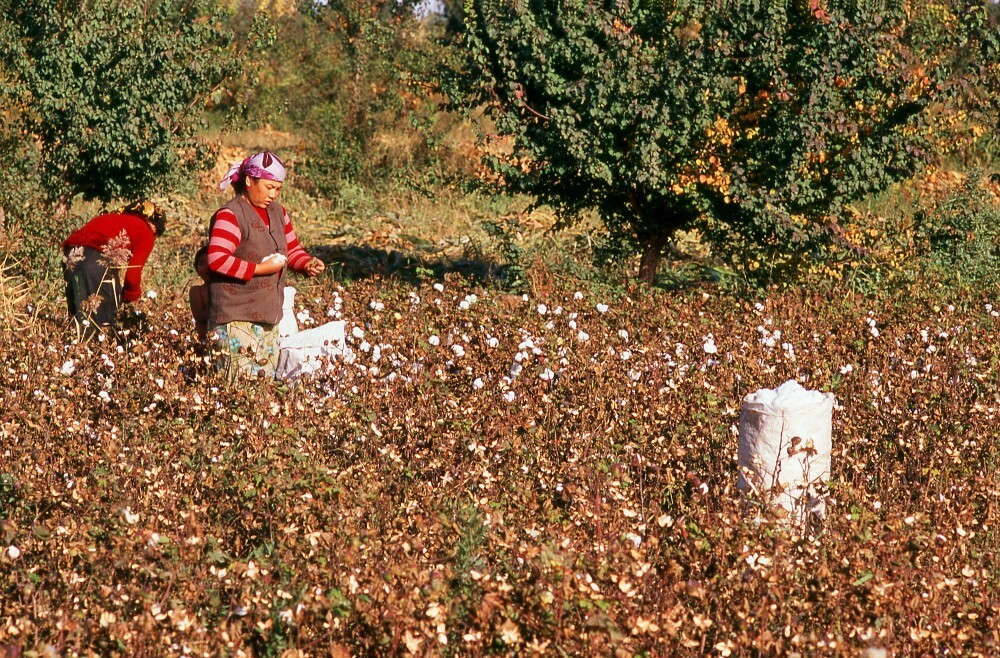cross-posted from: https://feddit.org/post/924771
Edit for including archived link.
More must be done to identify companies participating in labor transfer schemes, in particular outside of the Uyghur Region, the Coalition to End Forced Labour in the Uyghur Region, says.
The Coalition is joint force of civil society organisations and trade unions united to end state-sponsored forced labour and other egregious human rights abuses against people from the Uyghur Region in China, known to local people as East Turkistan.
While the coalition welcomes regulations by the U.S. administration aimed to end the state-sponsored forced labor of Uyghur and other Turkic and Muslim-majority peoples in supply chains such as the Uyghur Forced Labor Prevention Act (UFLPA), it says that “more must be done to identify companies participating in labor transfer schemes, in particular outside of the Uyghur Region”, writes Charlotte Tate, Advocacy Lead for the Coalition to End Forced Labour in the Uyghur Region.
There is growing evidence that Chinese government-led programs to transport Uyghurs to other parts of China, where the working conditions strongly indicate forced labor, are increasing.
Recent research has documented the government’s increased efforts to forcibly transfer Uyghurs outside of the Region, finding that in 2023, “Xinjiang significantly expanded the scale of the Pairing Assistance program, which facilitates cross-provincial labor transfers, aiming to increase transfers to other Chinese regions by 38 percent—levels exceeding those of any year since the mid-2010s.”
In the context of government control and coercion that Uyghurs and other Turkic and Muslim-majority peoples are experiencing in China, all state-sponsored labor transfers from the Uyghur Region should be considered coerced labor by companies. Individuals who refuse the government’s requirements risk being arbitrarily detained, along with their families.
An investigation published by the Outlaw Ocean Project into the seafood industry, which was recently added as a high-priority sector for enforcement, found that over 1,000 Uyghurs were placed in at least 10 seafood processing facilities after being forcibly transferred thousands of miles from the Uyghur Region.
This investigation found those same companies imported over 47,000 tons of seafood into the U.S. between 2018 and 2023. However, U.S. Customs and Border Protection (CBP) can only apply the UFLPA to future shipments if those seafood processors are included on the UFLPA Entity List, which may come as a surprise to some.
“Increasing UFLPA enforcement efforts on labor transfers outside of the Uyghur Region would send a strong signal to importers that they must focus attention beyond direct sourcing from the area,” Tate says.
A disturbing amount of western products are made using (what is essentially) slave labor. The US government maintains a list, but it’s got everything from bananas to bricks and brassware (and that’s just the B’s).
I see forced labor quoted so frequently. Call it what it is, Slavery
Meanwhile the USA uses slave labor to make Frosted Flakes, Ball Park Hot Dogs, Gold Medal Flower, and Coca Cola. Source
Does that somehow make China’s slave labor okay? Are you trying to say that because the US does fucked up shit, it is okay for China to have slavery?
I mean the article is about how the USA is trying to avoid products made by slave labor, while we have products made by US slave labor on every grocery store shelf…
Whataboutism. Typical response. Curious if you point out China’s forced labor in a thread about US
slaveprison labor. My guess is not.You can just say slave labor, the inmates dont have a choice if they work or not…
Slavery is okay if the supposed Communists do it. That seems to be the consensus here.
The US constitution explicitly allows slavery.
Don’t let this distract you from the fact that America is Bad
What evidence is there to indicate this is a consequence of forced labor? If the industries in Xinjiang that produced for export were sanctioned by the US, it makes sense that they would have to relocate. The people who worked for such industries would have to relocate as well if they wanted to keep their jobs. This accusation only makes sense if you make the absurd presumption that forced labor was essential to Xinjiang’s export economy.
It doesn’t matter the exact reasoning why they moved from a specific area, as long as that reason is caused by sanctions then it’s a consequence.
The accusation is that workers are being forcibly transferred by the Chinese government. That’s very different from the government supporting workers who want to voluntarily relocate within China to where the jobs are.
Assuming the article is correct about the slavery, then I would assume the workers don’t actually have any choice in whether they relocate or not. I’m not going to pretend I have great evidence, but that’s what I would infer.
Well that’s the problem. The article does not provide any evidence that workers migrating out a Xinjiang are being forced to do so. They just assume that based on their presumption that there is forced labor in Xinjiang. It’s a logical house of cards I suspect they’ve constructed to justify their own job as a lobbyist.



